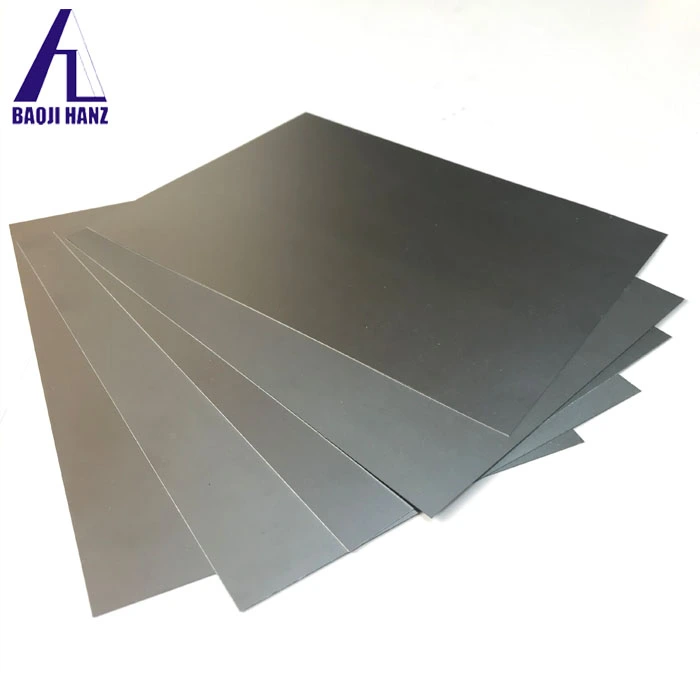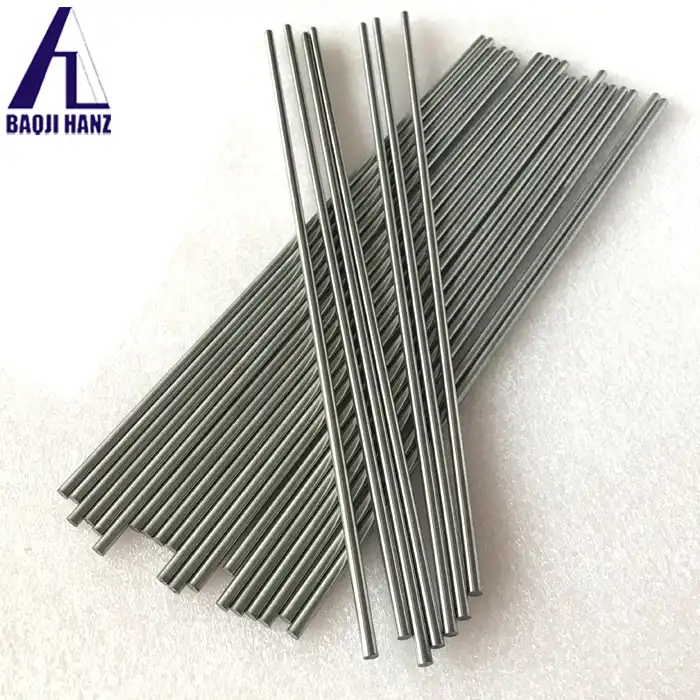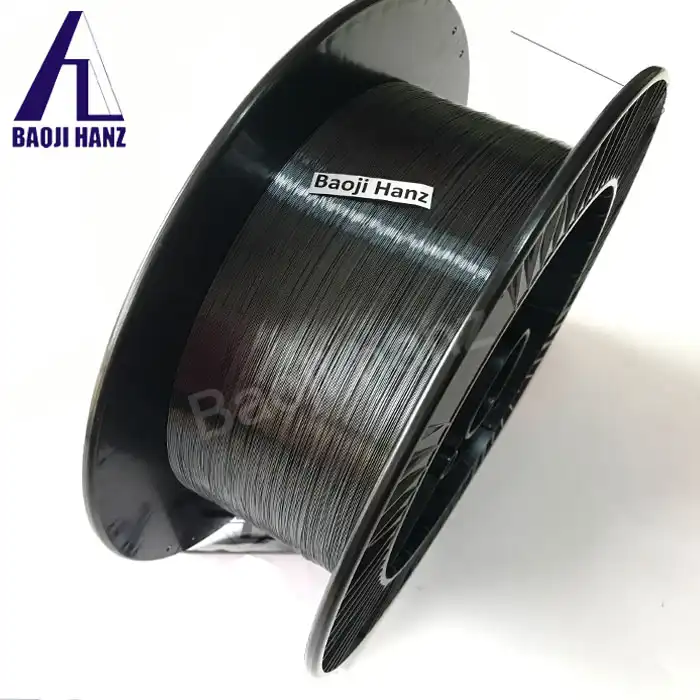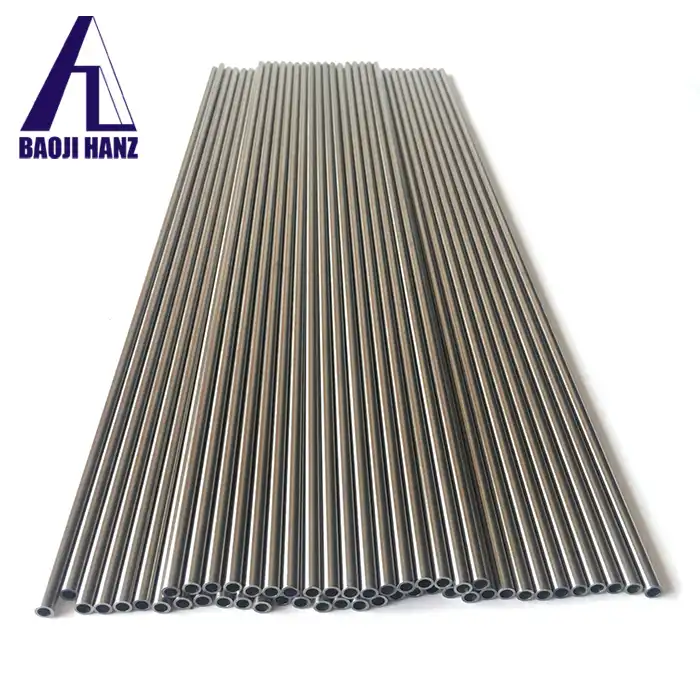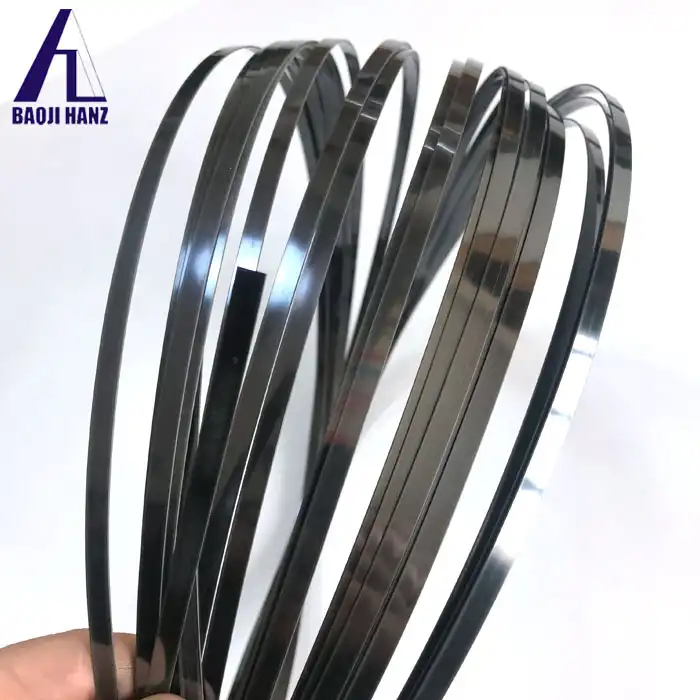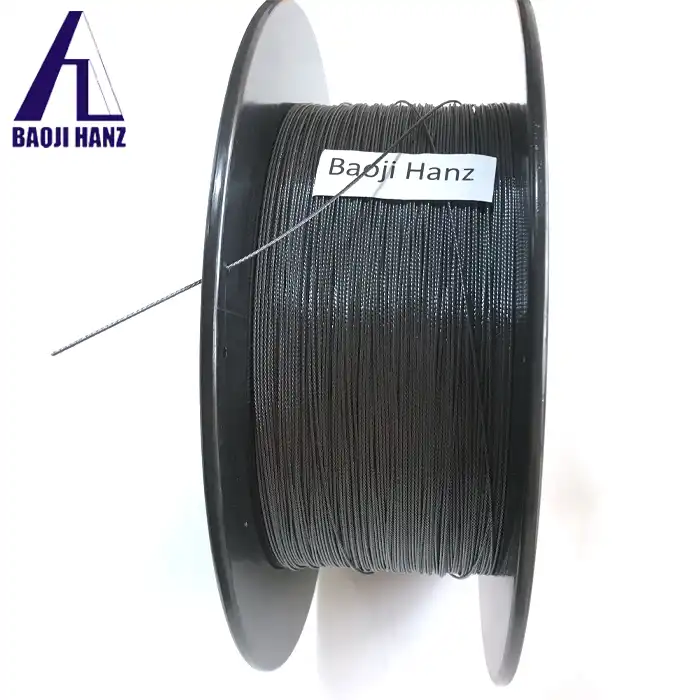Can Nitinol Memory Alloy Capillary Tubes Revolutionize Your Medical Device Manufacturing with Unmatched Flexibility?
2025-03-31 21:31:41
Are you searching for innovative materials to elevate your medical device manufacturing process? Nitinol memory alloy capillary tubes represent a groundbreaking advancement in material science that is transforming various industries, particularly medical device manufacturing. These remarkable tubes combine unique shape memory properties with superelasticity, creating components that can restore their predetermined shape when exposed to specific temperatures. The exceptional flexibility, durability, and biocompatibility of nitinol memory alloy capillary tubes make them ideal for developing cutting-edge medical devices that require precise movement and consistent performance under varying conditions. Let's explore how these revolutionary materials can dramatically improve your manufacturing processes and end products.
Transformative Properties of Nitinol Memory Alloy Capillary Tubes
Unprecedented Shape Memory Capabilities
The most distinguishing characteristic of nitinol memory alloy capillary tubes lies in their extraordinary shape memory properties. These specialized tubes are manufactured from a nickel-titanium alloy that exhibits unique crystalline transformations at the molecular level. When a nitinol memory alloy capillary tube is deformed at one temperature, it remains in the altered shape until heated above its transformation temperature, at which point it returns to its pre-programmed form with remarkable precision. This property enables medical device manufacturers to create instruments that can navigate through complex anatomical structures and then deploy into predetermined configurations once they reach their target locations. For example, a collapsed stent made from nitinol memory alloy capillary tube material can be inserted through a small incision and navigate through narrow blood vessels before expanding to its functional shape when it reaches the blockage site. This transformative property reduces the invasiveness of procedures, accelerates patient recovery, and enables treatments that would be impossible with conventional materials.
Superior Mechanical Performance Under Stress
Nitinol memory alloy capillary tubes demonstrate exceptional mechanical behaviors that conventional metal alloys simply cannot match. When properly manufactured, these tubes exhibit superelasticity, allowing them to undergo strain up to ten times greater than ordinary spring steel without permanent deformation. This remarkable property stems from the unique crystalline structure of the nickel-titanium alloy, which undergoes a phase transformation in response to applied stress rather than the typical dislocation movement seen in conventional metals. In practical applications, this means nitinol memory alloy capillary tubes can be repeatedly bent, twisted, or compressed during medical procedures without losing functionality or developing fatigue failure. For instance, guidewires and catheters manufactured with these materials can navigate tortuous vascular pathways while maintaining perfect integrity and control. The superior fatigue resistance of nitinol memory alloy capillary tubes—often exceeding millions of cycles under appropriate conditions—ensures exceptional reliability and longevity for implantable medical devices, significantly reducing replacement rates and associated surgical risks.
Biocompatibility and Corrosion Resistance
The integration of medical devices within the human body presents significant challenges regarding material compatibility and longevity. Nitinol memory alloy capillary tubes excel in this environment due to their outstanding biocompatibility and corrosion resistance. The passive titanium oxide layer that naturally forms on the surface of nitinol provides exceptional protection against the corrosive biological environment. This characteristic is particularly crucial for long-term implants such as stents, where material degradation could lead to serious complications. Studies have demonstrated that properly processed nitinol memory alloy capillary tubes exhibit minimal inflammatory response and excellent tissue compatibility, making them ideal for various implantable applications. The material's resistance to biocorrosion significantly outlasts many alternative options, ensuring that devices maintain their structural integrity and functional properties throughout their intended lifespan. Additionally, these tubes can be further enhanced through specialized surface treatments to optimize their interaction with biological tissues or to incorporate drug-eluting properties, expanding their therapeutic potential in advanced medical applications.
Advanced Applications in Medical Device Manufacturing
Revolutionizing Minimally Invasive Surgical Instruments
The medical industry has undergone a profound transformation with the integration of nitinol memory alloy capillary tubes in surgical instrument design. These remarkable materials have enabled the development of tools that can perform complex maneuvers within confined anatomical spaces while minimizing tissue trauma. Endoscopic and laparoscopic devices utilizing nitinol memory alloy capillary tubes can navigate through tortuous pathways and deploy sophisticated mechanisms at target sites with unprecedented precision. For instance, biopsy forceps constructed with these tubes can maintain their grasping capability despite repeated flexion through endoscopic channels. The superelasticity of nitinol allows these instruments to undergo severe bending without kinking or permanent deformation, a critical advantage over traditional stainless steel alternatives. Furthermore, the shape memory properties enable the creation of self-expanding retrieval baskets and snares that can capture and remove foreign objects or tissue samples while minimizing the risk of vessel damage. Manufacturers who incorporate nitinol memory alloy capillary tubes into their surgical instrument designs can achieve significant competitive advantages through enhanced functionality, improved procedural outcomes, and reduced patient recovery times, ultimately revolutionizing the landscape of minimally invasive surgery.
Transformative Impact on Cardiovascular Device Development
Cardiovascular medicine has perhaps benefited most dramatically from the unique properties of nitinol memory alloy capillary tubes. These materials have fundamentally changed the approach to treating vascular diseases by enabling the creation of self-expanding stents that conform perfectly to vessel anatomy. Unlike traditional balloon-expandable stents, nitinol stents manufactured from specialized capillary tubes can be compressed into delivery catheters and automatically deploy to their predetermined dimensions upon reaching the target vessel segment. This self-expansion capability allows for more precise vessel adaptation and reduces the risk of vascular injury during deployment. Additionally, the superelastic properties of nitinol memory alloy capillary tubes provide continuous outward force against the vessel wall while maintaining flexibility with vessel movement, significantly reducing the incidence of stent fracture or migration. The material's excellent fatigue resistance ensures long-term performance under the pulsatile stresses of the cardiovascular system, making these devices particularly suitable for challenging anatomical locations such as the carotid bifurcation or superficial femoral artery. By incorporating these advanced materials into their cardiovascular device portfolios, manufacturers can address previously untreatable conditions and dramatically improve outcomes for patients with complex vascular pathologies.
Enhancing Orthopedic and Neurological Implant Solutions
The orthopedic and neurological device sectors have experienced remarkable innovation through the integration of nitinol memory alloy capillary tubes in implant design. These specialized materials offer unique advantages for applications requiring controlled force application and adaptation to anatomical structures. In spinal surgery, nitinol-based dynamic stabilization systems utilize the superelastic properties of these capillary tubes to provide controlled flexibility while maintaining adequate support, more closely mimicking the natural biomechanics of the spine compared to rigid fusion systems. This balanced approach potentially reduces adjacent segment degeneration and improves long-term outcomes. In the field of neurovascular intervention, nitinol memory alloy capillary tubes have enabled the development of flow diverters and aneurysm occlusion devices that can navigate through the delicate cerebral vasculature and conform precisely to complex aneurysm geometries. The material's ability to provide constant, gentle force against vessel walls without causing trauma makes it ideal for these sensitive applications. Additionally, the thermal activation properties of nitinol can be harnessed for smart implants that change configuration in response to body temperature or externally applied heating, enabling novel approaches to fracture fixation and bone lengthening procedures. Manufacturers who leverage these advanced properties can develop truly differentiated products that address unmet clinical needs and establish new standards of care in orthopedic and neurological treatment paradigms.
Manufacturing Excellence and Quality Considerations
Advanced Processing Techniques for Optimal Performance
The exceptional properties of nitinol memory alloy capillary tubes are highly dependent on sophisticated manufacturing processes that require specialized expertise and equipment. At Baoji Hanz Metal Material Co., Ltd., we utilize advanced metallurgical technology to ensure precise control of composition and microstructure, which directly influences the functional characteristics of these materials. The manufacturing process begins with vacuum induction melting of high-purity nickel and titanium to create an alloy with exact compositional control—typically around 55-56% nickel by weight, with minute variations significantly affecting transformation temperatures. The ingots undergo multiple remelting processes to ensure homogeneity before being formed into tubes through a combination of hot working, cold drawing, and intermediate annealing steps. This complex processing sequence determines the final microstructure and, consequently, the mechanical behavior of the nitinol memory alloy capillary tubes. Our specialized techniques allow for precise adjustment of the austenite-to-martensite transformation temperatures, which can be tailored between -100°C and +100°C depending on the specific application requirements. Additionally, our advanced heat treatment protocols ensure consistent shape memory and superelastic properties throughout the entire length of the capillary tubes, eliminating performance variations that could compromise device functionality.
Stringent Quality Control and Certification Systems
Maintaining exceptional quality is paramount when manufacturing nitinol memory alloy capillary tubes for critical medical applications. Baoji Hanz Metal Material Co., Ltd. implements comprehensive quality control systems that exceed industry standards to ensure consistent performance and reliability. Our quality assurance process begins with rigorous raw material verification, using advanced spectroscopic techniques to confirm the exact composition of each production batch. Throughout the manufacturing process, we conduct multiple inspections and tests, including differential scanning calorimetry to verify transformation temperatures, tensile testing to confirm mechanical properties, and sophisticated microscopy to examine microstructural characteristics. The dimensional precision of our nitinol memory alloy capillary tubes is verified using laser micrometry systems capable of detecting variations smaller than one micron, ensuring perfect consistency for precision medical device applications. Our facilities maintain ISO 9001:2015 certification for overall quality management and ISO 13485:2016 specifically for medical device manufacturing, demonstrating our commitment to meeting the highest international standards. Additionally, our products comply with EU CE requirements, facilitating global regulatory approvals for medical devices incorporating our materials. This comprehensive quality framework provides manufacturers with confidence that our nitinol memory alloy capillary tubes will perform consistently and reliably, even in the most demanding applications where performance variability could compromise patient safety.
Customization Capabilities for Specialized Applications
The diverse requirements of advanced medical device applications necessitate a flexible approach to material specifications and properties. Baoji Hanz Metal Material Co., Ltd. offers extensive customization options for nitinol memory alloy capillary tubes to address specific design challenges and performance requirements. Our engineering team works closely with manufacturers to develop tailored solutions, adjusting critical parameters such as transformation temperatures, superelastic plateaus, and fatigue resistance to optimize performance for particular clinical applications. We can produce nitinol memory alloy capillary tubes in a wide range of dimensions, with outer diameters from 0.1mm to 12mm and wall thicknesses as small as 0.05mm, enabling the creation of extremely miniaturized components for microcatheters and endovascular devices. Beyond dimensional specifications, we offer various surface treatments, including electropolishing to enhance corrosion resistance and reduce thrombogenicity, or specialized coatings to improve radiopacity for improved visualization during procedures. Our advanced drawing and annealing processes can create gradient properties along the length of a single tube, allowing for sections with different flexibility or shape memory characteristics to suit complex functional requirements. With our OEM services, device manufacturers can access completely custom solutions that may include proprietary alloy modifications, specialized thermal treatments, or unique geometric features that address specific clinical challenges, ultimately accelerating innovation in medical device design and improving treatment outcomes.
Conclusion
Nitinol memory alloy capillary tubes represent a revolutionary material that continues to transform medical device manufacturing through their unparalleled combination of shape memory, superelasticity, and biocompatibility. These exceptional properties enable the development of innovative devices that improve procedural outcomes, reduce patient trauma, and address previously untreatable conditions across multiple medical specialties.
Ready to elevate your medical device manufacturing with cutting-edge nitinol solutions? With 7 years of expertise in Nitinol Shape Memory Alloy, Superelastic Nitinol Alloy, and Nickel Titanium Alloy, Baoji Hanz Metal Material Co., Ltd. offers unmatched quality and innovation. Our direct supply chain eliminates intermediaries, providing significant cost advantages without compromising quality. Take advantage of our large stock of standard sizes for fast delivery, or partner with our engineering team for custom solutions tailored to your specific requirements. Don't let material limitations constrain your next breakthrough—contact us today at baojihanz-niti@hanztech.cn to discover how our nitinol memory alloy capillary tubes can revolutionize your medical device manufacturing process.
Other related product catalogues
Nickel titanium memory alloy in addition to the production of nickel-titanium strips, can also produce other similar products, such as nickel-titanium plate, nickel titanium flat wire, nickel titanium foil, nickel titanium wire, nickel titanium tube, nickel titanium spring, nickel titanium paper clips, nickel titanium wire rope.
|
|
|
|
|
|
|
|
References
1. Johnson, A.D., & Martynov, V. (2022). Advancements in Nitinol Processing Technology for Medical Applications. Journal of Materials Engineering and Performance, 31(5), 3612-3628.
2. Zhang, X., & Qian, M. (2023). Shape Memory Alloys in Minimally Invasive Surgery: A Comprehensive Review. Medical Devices: Evidence and Research, 16, 125-142.
3. Chen, L., Wang, H., & Li, Y. (2022). Mechanical Properties and Fatigue Resistance of Nitinol Alloys for Cardiovascular Applications. Biomaterials Science, 10(8), 2034-2053.
4. Petrini, L., & Migliavacca, F. (2023). Computational Modeling of Nitinol Stents: Recent Advances and Future Perspectives. Journal of Biomechanical Engineering, 145(2), 021003.
5. Morgan, N.B., & Liu, Y. (2021). Surface Modification Techniques for Improved Biocompatibility of Nitinol Implants. Journal of Biomedical Materials Research Part B, 109(6), 967-984.
6. Williams, D.R., & Thompson, S.A. (2023). Emerging Applications of Shape Memory Alloys in Neurological Intervention Devices. Neurosurgical Review, 46(3), 1875-1892.

